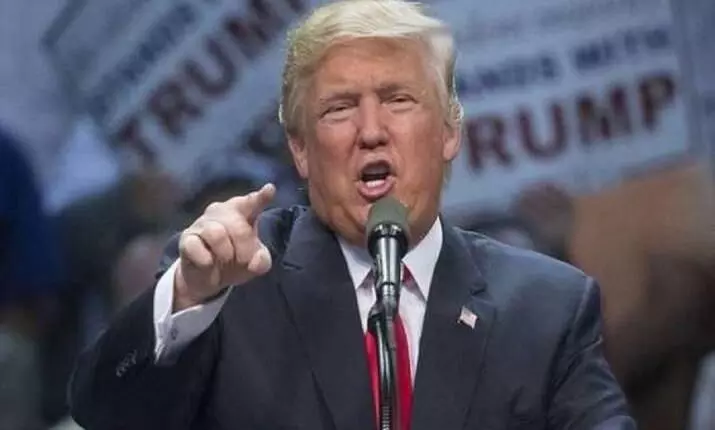
Trump vetoes annual defence bill, first time in 60 years
text_fieldsUS President Donald Trump, Image credit: PTI
Washington: President Donald Trump Wednesday vetoed the defence spending bill that required his signature to become law.
An overwhelming majority of lawmakers earlier passed the National Defense Authorization Act (NDAA) for Fiscal Year 2021. The veto to the NDAA is the first in nearly six decades.
The bill $740bn now depends on both the House and the Senate to override the veto, according to reports.
Lawmakers can override a presidential veto and enact the bill into law by mustering two-thirds of votes in both chambers of Congress - the House of Representatives and the Senate, BBC reported.
Mr Trump objects to Bill's measures to limit the toop withdrawal from Afghanistan and and Europe, and calls it " bad policy" and " unconstitutional" .
Trump objected the bill because it didn't include a provision to repeal or "make any meaningful changes" to Section 230 of the Communications Decency Act, a law that provides a legal shield to social media giants like Twitter and Facebook, which the president claimed used that section of the law to suppress conservative voices.
"I am returning, without my approval, H.R. 6395 ... My Administration recognizes the importance of the Act to our national security," Trump wrote in a statement to Congress notifying lawmakers of his decision.
"Unfortunately, the Act fails to include critical national security measures, includes provisions that fail to respect our veterans and our military's history, and contradicts efforts by my Administration to put America first in our national security and foreign policy actions," said the president.
Trump's refusal to sign the bill into law also derived from the inclusion of a provision that requires Confederate military bases to be renamed within three years.
The president stated that the bill "restricts the President's ability to preserve our Nation's security by arbitrarily limiting the amount of military construction funds that can be used to respond to a national emergency," and that "numerous provisions of the Act directly contradict my Administration's foreign policy, particularly my efforts to bring our troops home."
The House is scheduled to hold the override vote Monday, with the Senate to follow Tuesday.























